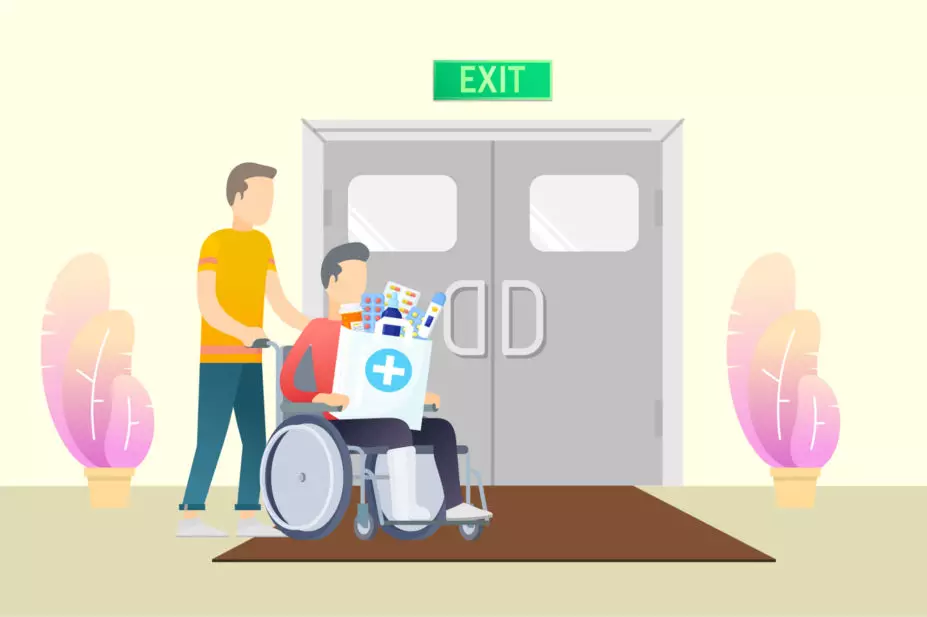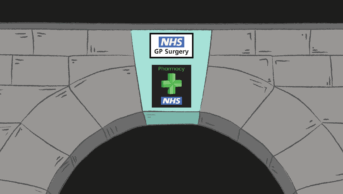
Mclean/Shutterstock.com
The ‘Pharmacy: Delivering a Healthier Wales’ report, published in May 2019, presented an exciting opportunity for the community pharmacy sector, detailing how a mobilised and upskilled pharmacy workforce can add value to the NHS[1].
To support the report, the Welsh government established a delivery board in July 2020, which welcomed funding applications for pharmacy-based projects that aim to help meet its goals. This led me to reflect on how I could contribute to this vision as a service development lead at Cardiff and Vale University Health Board (CAVUHB), considering my background as a community pharmacist.
One particular service of interest was the discharge medicines review (DMR) service — an all-Wales community pharmacist-led service commissioned in 2011 to reduce post-discharge medication-related harm — which research published in 2020 showed was associated with reduced hospital readmissions after 40 days[2].
The DMR service is offered in two parts: medicines reconciliation between the discharge advice letter (DAL) issued by the discharging care setting and the first post-discharge prescription to identify any discrepancies; and a medicines adherence support review to discuss the patient’s use of their medicines since discharge.
Patients are able to register with the service at any time, whether in their community pharmacy or on a hospital ward using the national electronic discharge system. If they are then admitted to hospital and later discharged, their DAL will automatically be sent to their community pharmacy for medicines reconciliation. After the first part of the service is completed, adherence support is provided between 28 days and 56 days later.
However, despite its benefits in reducing hospital readmissions, a 2018 evaluation of DMR provision showed that while each pharmacy in Wales was commissioned to provide 140 annual DMRs, less than 1% of these were provided on average[3].
Spotting an opportunity
Having spent many years as a community pharmacist trying to promote the DMR, applying for funding from the delivery board seemed like a perfect opportunity to explore how CAVUHB could optimise its use.
Our project proposals initially had a broader scope, with plans to involve pharmacy teams in secondary care to help prioritise patients for referral through the DMR service. However, this was hampered by the COVID-19 pandemic, when hospitals became overwhelmed. Instead, the project team refocused the proposals to trial a pharmacy technician-led post-discharge medicines reconciliation service in community pharmacy, which could later be integrated into the DMR service specification.
Although this may sound like a simple task, workforce pressures in community pharmacy during the pilot period between February 2022 and April 2022 meant that not all sites and technicians were able to commence providing the new service straight away.
Participating pharmacy technicians suggested their strong relationships with patients and skillset allowed them to support patients during the challenging post-discharge period
Working with CAVUHB and Welsh government, the team created a new service specification for the pilot. Eight pharmacy technicians across five pharmacies in CAVUHB volunteered to participate from February 2022 to at least the end of April 2022.
To enable these pharmacy technicians to access electronic DALs, Digital Health and Care Wales (which replaced the NHS Wales Informatics Service in April 2021) gave access to the DMR module in ‘Choose Pharmacy’, the national shared community pharmacy services platform. Since this was also the first service allowing pharmacy technicians access to Choose Pharmacy, the participating pharmacy technicians also undertook accreditation training with Health Education and Improvement Wales, alongside medicines reconciliation training.
Showing value
Despite the small number of participating pharmacy technicians and the impact of COVID-19, the pilot evaluation — which was conducted with the help of Robert James, a community pharmacist writing a PhD thesis on engagement with the DMR service — demonstrated the value of pharmacy technician-led post-discharge reconciliation.
In the active pilot sites, pharmacy technicians carried out up to 30% of all DMRs provided, releasing pharmacist capacity to provide other services, like the pharmacist independent prescriber service or common ailments service.
Importantly, the participating pharmacy technicians were enthusiastic about the service and confident in delivering it. They suggested their strong relationships with patients and well-suited skillset allowed them to support patients during the challenging post-discharge period.
After the successful completion of the pilot in April 2022, the Pharmaceutical Service (Clinical Services) (Wales) directions 2022 was updated on 1 April 2022 to include the option of having a pharmacy technician carry out a DMR[4].
Then, in April 2022, the Welsh government subsequently reviewed the DMR service specification, confirming that pharmacy technicians will be able to carry out a DMR and access the Choose Pharmacy platform from July 2022. This brings the DMR to parity with the new yet similar discharge medicines service in England, which allows community pharmacist or pharmacy technician delivery.
This project has been the culmination of hard work from many partners, including the pharmacy technicians who participated in the pilot. It has been my personal vision to empower community pharmacy technicians in Wales and showcase this group as a true asset.
The introduction of a technician-led DMR service within Wales builds on the goal set out in ‘Pharmacy: Delivering a Healthier Wales’ to provide community pharmacy with an increased focus on medicines optimisation, upskilling the pharmacy workforce, transforming access to medicines and pharmaceutical advice to improve quality, sustainability and value and, as such, this pharmacy technician focused workstream in Wales is unlikely to end here.
- 1Pharmacy: Delivering a Healthier Wales. Royal Pharmaceutical Society Welsh Pharmaceutical Committee. 2019.https://www.rpharms.com/Portals/0/RPS%20document%20library/Open%20access/Policy/Pharmacy%20Vision%20English.pdf?ver=2019-05-21-152234-477 (accessed Aug 2022).
- 2Mantzourani E, Nazar H, Phibben C, et al. Exploring the association of the discharge medicines review with patient hospital readmissions through national routine data linkage in Wales: a retrospective cohort study. BMJ Open. 2020;10:e033551. doi:10.1136/bmjopen-2019-033551
- 3Hodson K. A four-year evaluation of the discharge medicines review service provision across all Wales. International Pharmaceutical Federation . 2018.https://www.fip.org/abstracts?page=abstracts&action=item&item=20053 (accessed Aug 2022).
- 4The National Health Service (Wales) Act 2006; The Pharmaceutical Services (Clinical Services) (Wales) Directions 2022. Welsh government. 2022.https://gov.wales/sites/default/files/publications/2022-03/the-pharmaceutical-services-clinical-services-wales-directions-2022.pdf (accessed Aug 2022).


